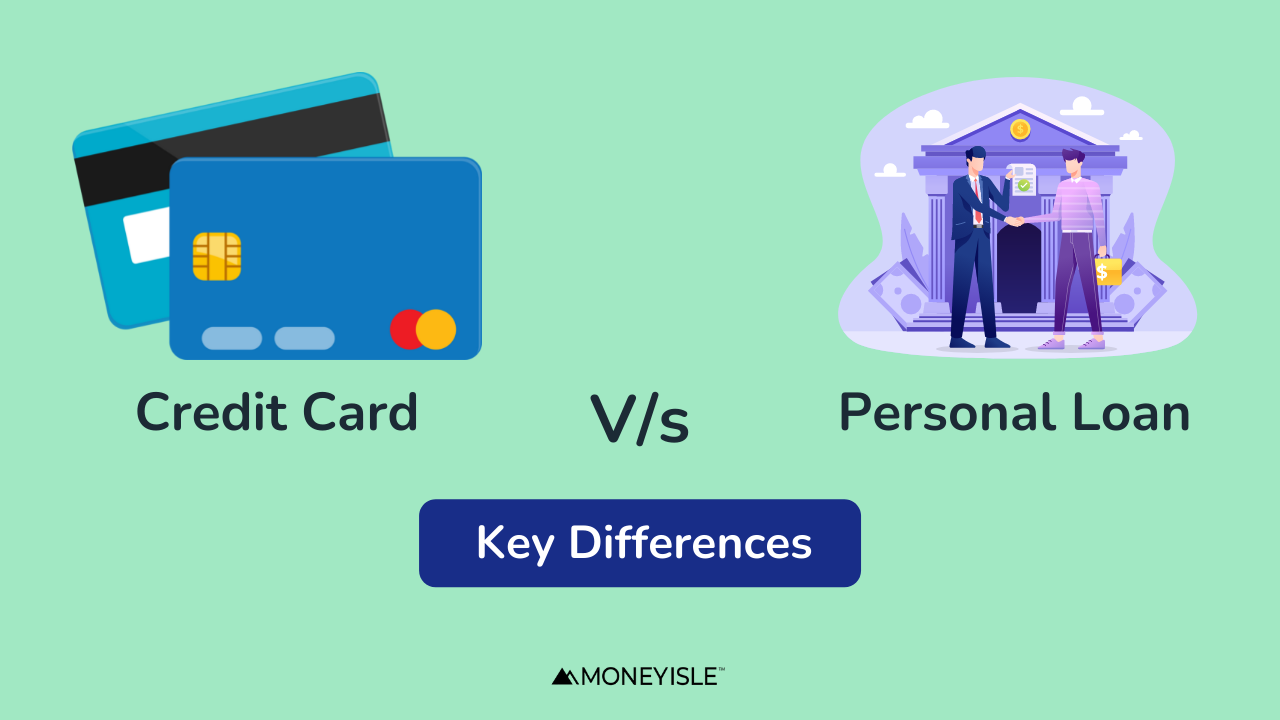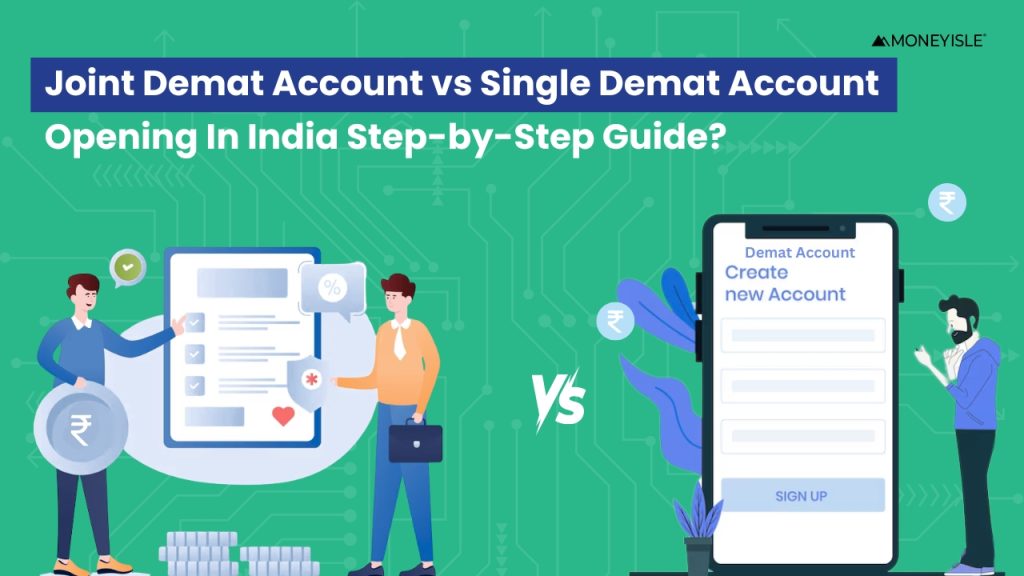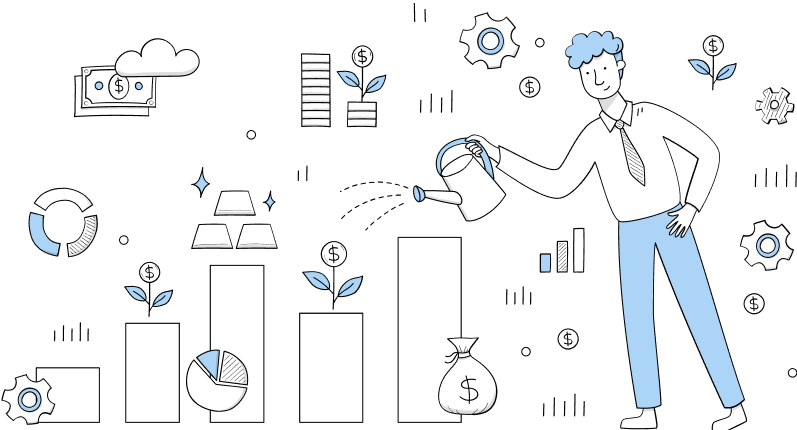While credit card loan and personal loan, both are suitable methods of borrowing money, the difference between the both is quite significant and enough to make you weigh the pros and cons.
Whether you are borrowing a personal loan or just using your credit card, you are going to have a repayment period that you need to adhere to. Not just that, but both have a specific interest rate and late fees and affect your credit score in a positive or negative way.
Between a personal loan vs credit card, deciding which to use depends on a variety of factors. Some of these factors include how much money you need, how quickly you can repay the debt, and what kinds of interest rates you want to deal with.
In this article, we will be understanding the difference between personal loan and credit card a little more closely and find out among the two, which is a more suitable option for you.
The importance of your credit score
Before we dive into the differences between a credit card loan and personal loan, it’s important to understand that both affect your credit score.
Your credit score is an amalgamation of a variety of factors. It depends on factors like:
- If you make on-time repayments on your loans
- How many loan accounts are active under your name
- How much credit do you utilize
- The age of your loan account
How credit scores matter to you is that it helps lenders determine how likely they are going to be repaid on time. Usually, a credit score ranges from 300 to 850. The higher it is, the more chances you have of getting approval on your loan.
This also means that if you are trying to borrow any kind of a loan in future, be it a personal loan for a house or a car, an improved credit score can increase your chances of getting approval on these loans with lower interest rates as well.
Altogether, these factors also determine your interest rates and the principal loan amount issued against your name.
Choosing a credit card
Choosing a credit card is ideal when you want to:
- Manage your financials better and for the purposes of spending regularly
- Require money instantly
- Build your credit score
- Be disciplined with your money
Credit cards are an amazing financial option, especially when you are able to repay every time without generating interest on your repayments.
How it’s different from a personal loan is that rather than getting a lump sum of money, you pay for exactly what you want and save the balance on your credit card. This helps you pay for only what’s necessary and keep the rest of the credit limit freed up.
However, in cases when you carry a higher balance, it negatively impacts your credit score. With such interest rates, credit cards are generally suitable for short-term financial options and managing daily expenses or paying off bills.
Pros of owning a credit card
Credit cards have their own set of advantages that make them unique, handle, and extra benefits to use in most scenarios. Some of the common advantages of credit cards are:
- You can use credit cards whenever you want to
- Lower repayment time means lower interest rates
- Unlocks many benefits and rewards from time to time
- Fairly easier to get
- Good credit history can get you an increased credit limit
Cons of owning a credit card
While credit cards evidently are beneficial in many ways, they have their own set of disadvantages as well:
- Credit cards typically have higher interest rates as compared to personal loans
- Credit cards ‘may’ also have an annual fee
- Sometimes, credit cards aren’t accepted by some establishments. Moreover, they have a small processing fee as well
Choosing a personal loan
A personal loan is an ideal option for you when:
- You want to clear large, high-interest debts
- You need to finance a large expense, maybe like a house or a car
- You want a higher lump sum of money with a one-time spending option
Personal loans are a great option when you need more financing options than a credit card. Rather than making payments from time to time, a personal loan equips the borrower with cash upfront that they have a finite time to repay in full.
Between a credit card loan and personal loan, the latter also offers scheduled payments, monthly repayment options and can affect your credit score.
A personal loan could be drawn for a variety of reasons. Even if you have a loan against credit card, a repair or an upgrade at home, or make large purchases, a personal loan can satisfy all these demands for you.
Usually, home loans and other types of secured loans are also considered personal loans. These loans may, however, be easier to obtain since they are backed by collateral assets.
Failing to repay the loan amount and making delinquencies in repayments, the lender becomes eligible to take possession of the home or car that you bought with the loan amount.
Pros of borrowing a personal loan
Between a personal loan vs credit card, a personal loan has a variety of advantages that makes it a suitable option in most cases. Some of these advantages include:
- Personal loans usually have lower interest rates as compared to credit cards
- Personal loans are suitable for bigger purchases
- Personal loans offer fixed monthly payments that can help you plan your budget in advance
- Borrowing a personal loan is fairly easier depending on your credit history
Cons of borrowing a personal loan
While personal loans are great for acquiring a lump sum of money at once, they also have their fair share of disadvantages that include:
- Personal loans may have higher interest rates for borrowers with a bad credit history
- Monthly payment amounts on personal loans are hard to adjust sometimes
- Personal loans give you a fixed amount of money at once over a credit line that you can draw from anytime
- Your property could be seized as collateral if the money isn’t paid on time
Credit card vs Personal loan: The key differences
Here’s a detailed chart that draws the differences between a personal loan vs credit card.
Feature | Credit Card Loan | Personal Loan |
Approval Time | Credit loans are generally approved in the span of 24 to 48 hours | A personal loan takes up to a week to get approved |
Application Process | Less documentation is required since the lender already has your financial details | A detailed documentation is required for the verification purposes |
Available loan amount | Credit card loans are suitable in case of lesser amounts required | Personal loans are suitable for larger expenses |
Loan Duration | Shorter repayment tenure | Longer tenure |
Eligibility | Borrowers with a credit card can apply for this type of loan | Even non-customers of the bank can borrow the loan |
Payment method | Money is transferred directly to the card account | Lump sum amount is paid as cash/cheque to the account of the receiver |
Maximum loan amount | Depends on the pre-approved credit limit of the cardholder | Decided by the bank depending on the income and credit history of the borrower |
Conclusion
Credit has a variety of types. With the differences between personal loans and credit cards, it’s almost important to analyze each one carefully and choose as per your preferences and capacity.
Between a credit card and a personal loan, things like the repayment periods, interest rates, loan amount, application process, collateral and other things can also positively impact your decisions.
Regardless of what you choose, try to make sure your credit score is always healthy. This helps you draw more loans in the future and pay lower interest rates each time.











